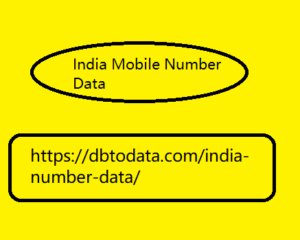What are Social Tokens and what are they for?
Mar 10, 2024 3:45:39 GMT -6
Post by account_disabled on Mar 10, 2024 3:45:39 GMT -6
The internet we use today, known as web2, is dominated by companies that provide services in exchange for personal data, to be used in an aggregate manner, to sell advertising space to advertisers. Google, Meta, TikTok, Spotify need millions of users who inhabit their spaces and creators who enrich them with their content. Precisely the latter are questioning this business model that thrives thanks to their productions, not providing sufficient earning opportunities. And in fact, social companies are taking action by offering direct monetization functions of the creators' follower base. Today, however, we are starting to talk about an evolutionary stage of the internet, called Web3 , which could open the doors to a more sustainable and fair business model, based on blockchain technology and the decentralization of network services.
In particular, social tokens are being tested to India Mobile Number Data adequately remunerate creators . Types of social tokens Social tokens are tokens (therefore software code) issued by individuals or communities that allow followers and members of a community to participate, producing value and obtaining some utility in exchange. Each token represents a portion of the community's value. Social token is a broad term that includes personal tokens or creator tokens (which are issued by an individual) and community tokens (which concern an interest group). This type of token is called fungible in the sense that each one can be exchanged with another of the same type (they are often encoded using the ERC-20 standard), as if it were a currency. Sometimes it happens that creators and communities decide to issue both fungible and non-fungible tokens (NFTs).

The former are used to enter the community, the latter are created to give a reward to members, linked or not to a certain status. Likewise, there are cases in which it is decided to use only NFTs (this is the case of Bored Ape Yatch Club and CryptoPunks , or Gary Vaynerchuk 's project ). Typically the issuance of fungibles is linked to long-term projects, while NFTs are used for well-defined and time-limited activities. Social tokens may be reminiscent of the "strawberry points" of loyalty collections or the badges that are issued by 2.0 communities (for example the Reddit Karmas), but they have some peculiar characteristics: They are actually owned by the buyers and, therefore, can be used outside the community.
In particular, social tokens are being tested to India Mobile Number Data adequately remunerate creators . Types of social tokens Social tokens are tokens (therefore software code) issued by individuals or communities that allow followers and members of a community to participate, producing value and obtaining some utility in exchange. Each token represents a portion of the community's value. Social token is a broad term that includes personal tokens or creator tokens (which are issued by an individual) and community tokens (which concern an interest group). This type of token is called fungible in the sense that each one can be exchanged with another of the same type (they are often encoded using the ERC-20 standard), as if it were a currency. Sometimes it happens that creators and communities decide to issue both fungible and non-fungible tokens (NFTs).

The former are used to enter the community, the latter are created to give a reward to members, linked or not to a certain status. Likewise, there are cases in which it is decided to use only NFTs (this is the case of Bored Ape Yatch Club and CryptoPunks , or Gary Vaynerchuk 's project ). Typically the issuance of fungibles is linked to long-term projects, while NFTs are used for well-defined and time-limited activities. Social tokens may be reminiscent of the "strawberry points" of loyalty collections or the badges that are issued by 2.0 communities (for example the Reddit Karmas), but they have some peculiar characteristics: They are actually owned by the buyers and, therefore, can be used outside the community.




